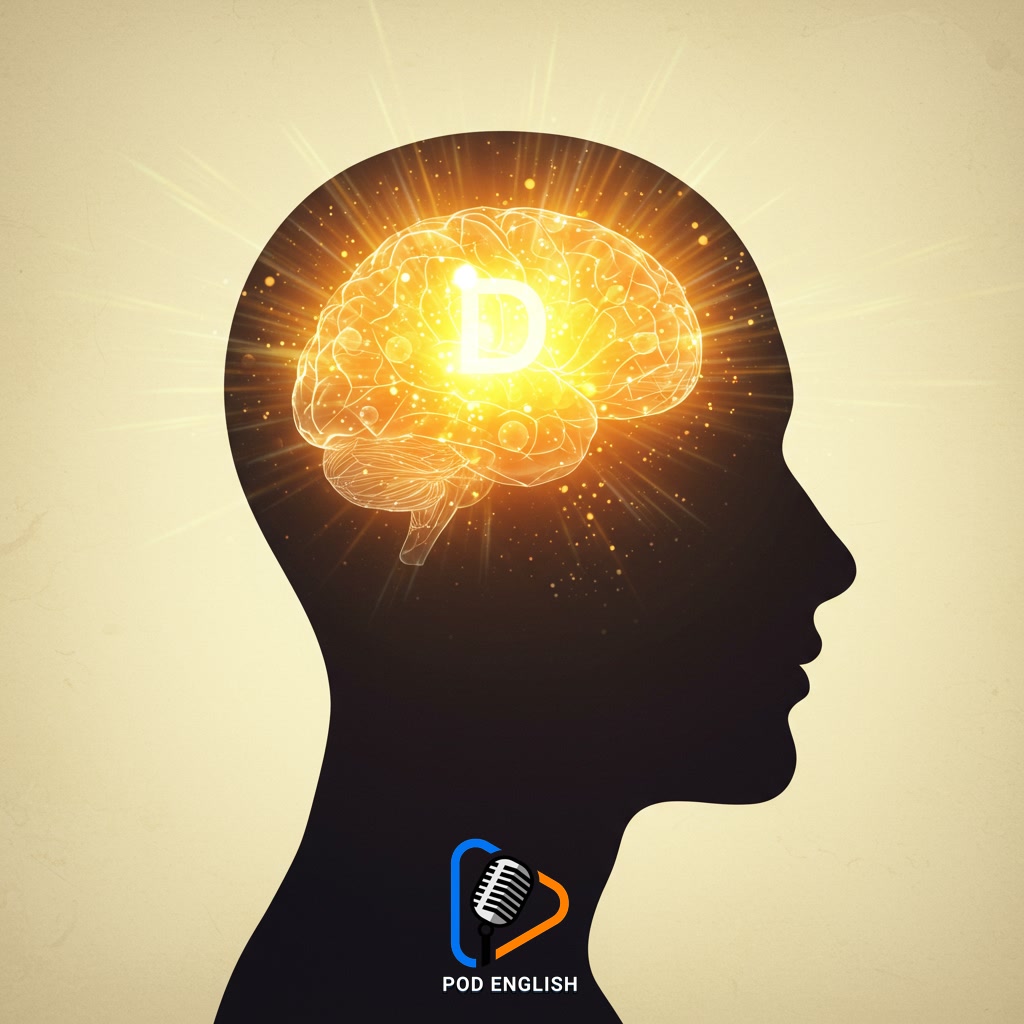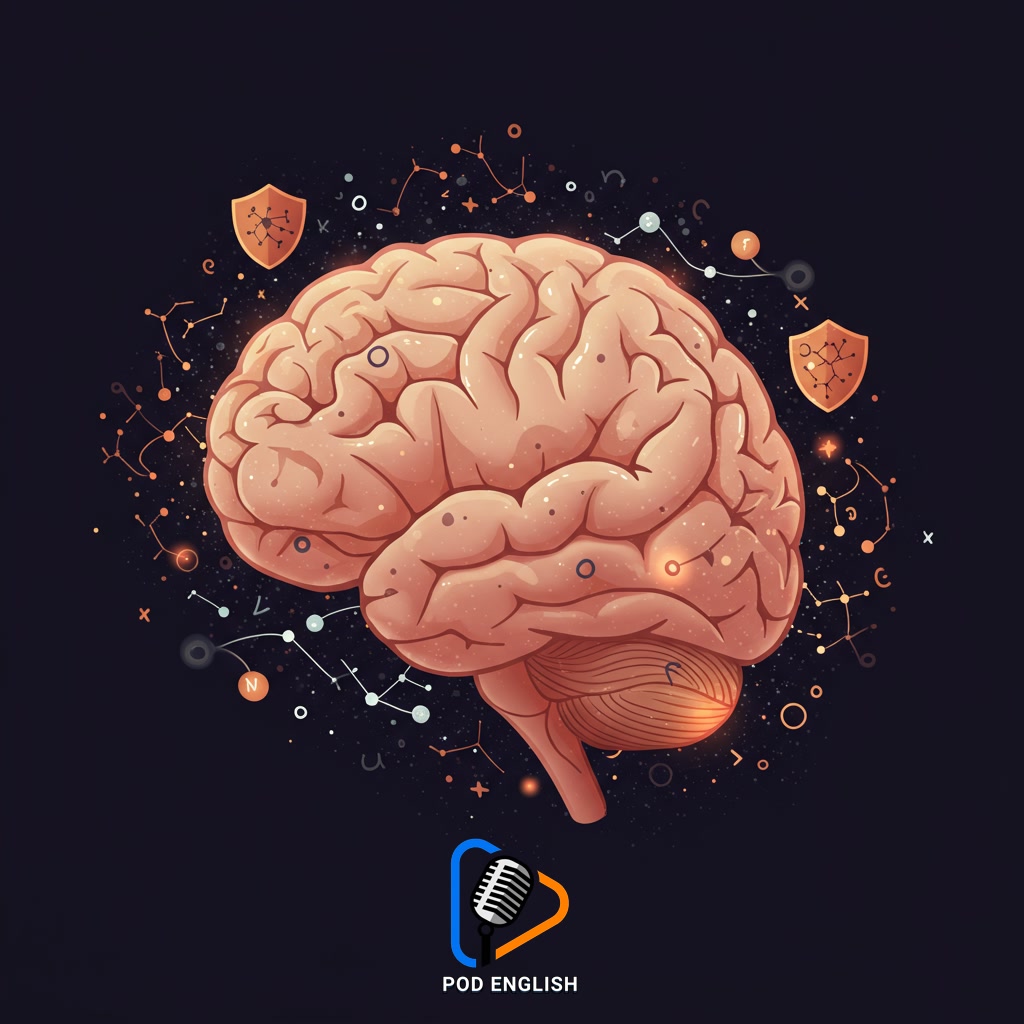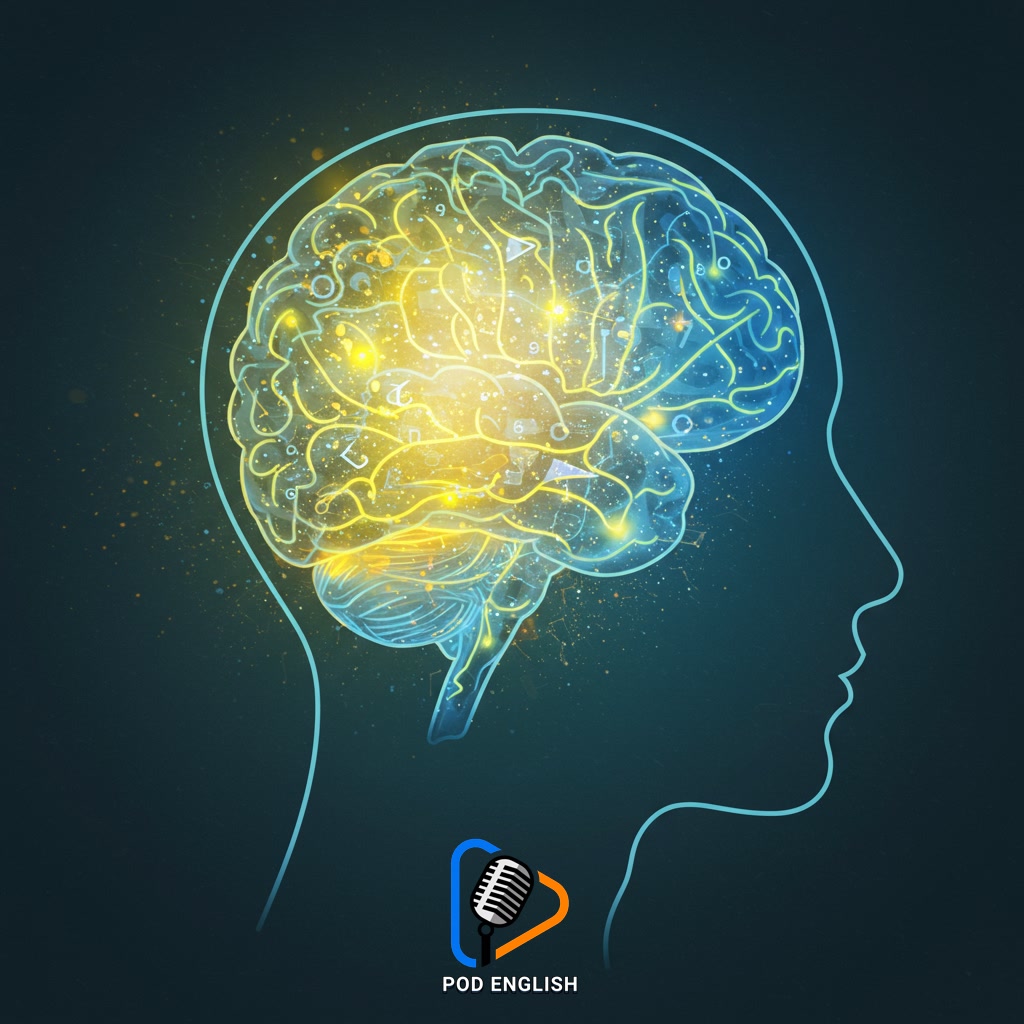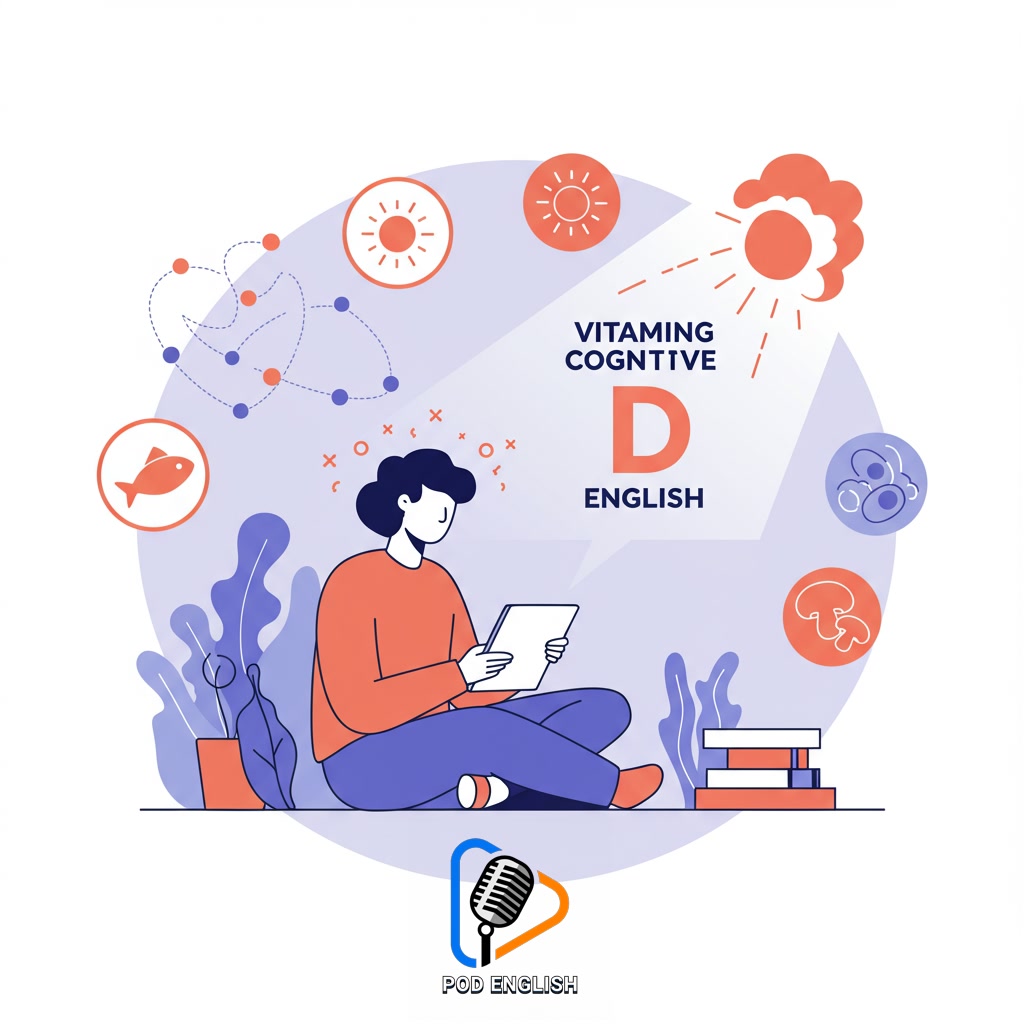Learn English
Vitamin D Boosts Brain Power for English Learning

This content examines the link between Vitamin D and cognitive function. It suggests that adequate Vitamin D levels may positively influence brain power required for acquiring new skills. Specifically, the discussion focuses on how optimizing Vitamin D intake could potentially enhance the process of learning English. Maintaining sufficient Vitamin D may therefore be a supportive factor in improving outcomes when learning English.
Table of Contents
- Section 1: Introduction: The Link Between Vitamin D and Brain Power
- Section 2: How Vitamin D Impacts General Brain Function
- Section 3: Cognitive Benefits of Vitamin D: Memory, Focus, and Learning
- Section 4: Applying Vitamin D Benefits to English Learning
- Section 5: Ensuring Optimal Vitamin D Levels for Enhanced Learning
- Section 6: Integrating Vitamin D for Improved English Language Acquisition
Section 1: Introduction: The Link Between Vitamin D and Brain Power
Vitamin D is widely recognized for its crucial role in maintaining bone health, but recent research highlights its significant impact on other bodily functions, including brain health. Studies suggest a compelling link between adequate levels of Vitamin D and enhanced cognitive function. This sunshine vitamin appears to play a part in processes related to mood, memory, focus, and overall mental clarity. Understanding this connection is the first step in exploring how optimizing Vitamin D levels might support the brain’s capacity for learning and acquiring new information. This introductory section sets the stage for a deeper dive into how this vital nutrient could potentially boost the cognitive power needed for challenges like mastering the English language.

Section 2: How Vitamin D Impacts General Brain Function
Building upon its known benefits for physical health, Vitamin D also plays a critical role in supporting the complex functions of the brain. Research indicates that Vitamin D receptors are present in many areas of the brain vital for learning, memory, and cognitive processing. Adequate levels of this vitamin are thought to influence the production and function of neurotransmitters, the chemical messengers that allow brain cells to communicate effectively. Furthermore, Vitamin D may help promote the growth of new neurons and protect existing brain cells from damage by reducing inflammation and oxidative stress. These fundamental processes are essential for maintaining sharp cognitive function, enabling the brain to process information efficiently and lay the groundwork for acquiring new knowledge and skills.

Section 3: Cognitive Benefits of Vitamin D: Memory, Focus, and Learning
Building upon its known benefits for physical health, Vitamin D also plays a critical role in supporting the complex functions of the brain. Research indicates that Vitamin D receptors are present in areas of the brain vital for cognitive processes. This suggests that adequate Vitamin D levels can positively influence brain functions crucial for learning, memory, and focus. Specifically, sufficient Vitamin D may help strengthen the neural connections needed for recalling information, improve the ability to concentrate during study sessions, and enhance the overall process of acquiring new skills. For those learning English, this means maintaining optimal Vitamin D could potentially support better retention of vocabulary and grammar rules, improve comprehension during listening or reading, and make focused practice sessions more effective, ultimately aiding in fluency development.

Section 4: Applying Vitamin D Benefits to English Learning
Building on the understanding that Vitamin D supports brain function, we can see how this translates to the specific demands of learning English. Acquiring a new language requires strong cognitive abilities, including memory for vocabulary and grammar rules, focus during lessons and practice sessions, and the ability to process and understand new information. Sufficient Vitamin D levels are associated with improved memory recall, enhanced concentration, and faster information processing speed. Therefore, by ensuring adequate Vitamin D intake, learners may find it easier to absorb new English words, concentrate better during reading or listening exercises, and retain grammatical structures more effectively. This cognitive support from Vitamin D can act as a helpful factor in optimizing the English learning journey.

Section 5: Ensuring Optimal Vitamin D Levels for Enhanced Learning
To effectively harness the cognitive benefits of Vitamin D for learning English, it’s crucial to ensure your levels are optimal. The most natural way to obtain Vitamin D is through exposure to sunlight, as your skin produces it when exposed to UV rays. However, factors like geography, season, and lifestyle can make this difficult. Dietary sources also contribute, including fatty fish like salmon and mackerel, fortified foods like milk and cereal, and egg yolks. For many, especially in regions with limited sun or with specific dietary restrictions, supplementation may be a necessary and effective way to maintain adequate levels. Consulting a healthcare professional can help determine your current status and the best approach to ensure you have enough Vitamin D to support your brain’s capacity for acquiring new knowledge and skills, including the complex task of language learning.

Section 6: Integrating Vitamin D for Improved English Language Acquisition
Following the discussion on obtaining Vitamin D, integrating these sources effectively supports the cognitive processes vital for language acquisition. Maintaining optimal levels through balanced sunlight exposure, dietary sources like fatty fish or fortified foods, and potentially supplements, provides the brain with necessary support for functions such as memory formation, information processing speed, and attention. These cognitive enhancements are directly applicable to learning English, aiding in memorizing new vocabulary and grammar rules, improving focus during study sessions, and processing spoken and written English more efficiently. By consciously integrating Vitamin D strategies into a healthy lifestyle, learners may find their brain is better equipped to tackle the challenges of acquiring a new language, making the learning process smoother and potentially more effective.














